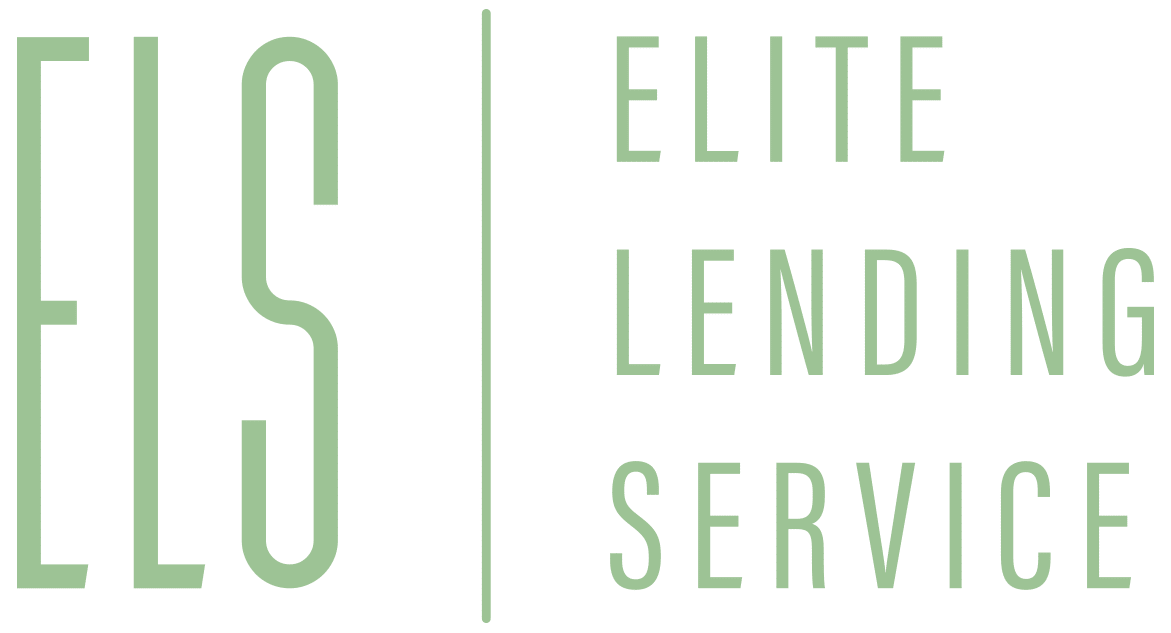Table of Contents
Ever asked yourself, “How can I get the best home loan rate?” A tiny difference in your mortgage rate can add up to thousands in savings. To build a secure financial future, finding the best rate is a must. It’s more than just shopping for the lowest number on a flyer; you need to align choices with how much you can really afford.
Start with what you control: your credit score, debt-to-income ratio, and market conditions. Interest rates fluctuate all the time. Knowing your numbers inside and out means you can pounce when a deal pops up. As a rule, stronger credit means a better rate, so boost that score as much as you can.
The mortgage world offers various loan types—like conventional, FHA, VA, and USDA. Each has strengths, so do a side-by-side look to see what fits you. Along with that, read up on fixed-rate and adjustable-rate loans. People sometimes chase the lowest starting rate, only to wind up with a loan that spikes later and wrecks budgets.
This blog breaks down every step to score the best loan. Want even more in-depth mortgage info? Check out the full guide linked.
Key Takeaways
- Home loan interest rates are one of the biggest factors that decide how much you’ll pay every month and how affordable your house really is.
- If you have a strong credit score of 720 or higher, you will usually pay a lot less over the life of the loan than someone with a lower score.
- Most lenders like to see a debt-to-income ratio of 36% or less, so be sure your monthly debts aren’t too high compared to your monthly income.
- Take the time to compare rates from several lenders; even a small difference can save you hundreds of dollars over the loan.
- Knowing the different types of mortgages, like fixed, adjustable, or government-backed, will help you pick the one that fits your needs best.
Understanding Home Loan Rates
Home loan rates are not set in stone—they keep shifting based on a mix of factors. To buy a house confidently, you should know what those factors are. Learning them inside and out now could save you a big pile of cash over the life of your loan and get the best interest rates.
Jumping into the numbers, think about the type of loan you want, what the market is doing, and your own finances. Having a grip on these pieces of the puzzle allows you to pick the loan that fits your plan.
What Factors Affect Your Home Loan Rate?
Several key factors determine what interest rate you’ll be offered. Your credit score, overall market conditions, and the type of mortgage you select are usually the biggest. A score of 720 or above can unlock the lowest rates, while a score in the lower bracket likely means you will face higher costs.
Understanding where your credit score sits today helps you figure out the best way to work on it and get a home loan, potentially cutting a chunk out of your cost.
Fixed vs. Adjustable-Rate Mortgages
A mortgage always falls into one of two camps: fixed or adjustable. With a fixed-rate mortgage, the interest rate stays the same for the life of the loan. You know exactly what your payment will be month after month, making budgeting a breeze.
An adjustable mortgage starts out with a lower rate, usually for a set number of years, then the interest can change based on market movements. Your payment could go up or, in rare cases, down, making it harder to plan long-term overall costs.
The Role of Credit Scores
Your credit score is one of the biggest factors in the mortgage rate you’ll get. The higher the score, the lower the interest rate, and the chance of paying fewer fees. Always look at your credit score before you go to the lender; you’ll usually save money in the long run.
Preparing Your Finances for a Home Loan
The best thing you can do for a mortgage is to prepare for a home loan. First, check three numbers: your credit score, your debt-to-income ratio, and your payment history. The better they look, the easier the loan feels.
Banks like a debt-to-income ratio below 36%. That tells them you’re not stretched too thin, and it helps you compare offers from different lenders.
Assessing Your Financial Health
Start by running a credit check. A score of 661 or better is usually viewed as good, while lower numbers scream for some immediate care. Paying your bills on time is the quickest way to boost that score for the best interest rates. When lenders see a history of on-time payments, they know you can handle a mortgage.
Saving for a Down Payment
Saving for a down payment is a big milestone. In July 2024, the average down payment was more than $60,000. Putting down 20% or more can let you skip private mortgage insurance, which is more money in your pocket each month.
A larger down payment often gets you a lower mortgage rate, so it pays to save as much as you can. You can grow your savings by setting small, regular transfers to your savings account or by making a simple monthly budget to track spending.
Taming Existing Debt
Taming your current debt matters a lot when you start the mortgage process. Lenders want to see a debt-to-income ratio (DTI) that shows you aren’t stretched too thin. Aim for a DTI below 25% if you can. This number makes it clear how much of your pay is going to existing debts compared to how much you earn.
Stay current on all your debt payments, and if you have any overdue bills, pay them off ASAP. Doing this now can give you access to better mortgage rates when you apply.

Comparing Lenders for the Best Rates
To get the lowest mortgage rate, you need to shop mortgage lenders like you would shop for a big-ticket item. A lender isn’t just the bank that processes your paperwork. It’s the business that gets you the money for your new home. Before you commit, check for competitive rates, decent terms, and responsive support. A lender that meets these needs doesn’t just feel right; it saves you cash. More quotes mean more room to negotiate, so gather as many as you comfortably can.
What to Look for in a Mortgage Lender
When you have a rate quote in hand, don’t get starry-eyed. Dig deeper. Look for fees that add up quickly—like origination and underwriting charges—presented in plain language. Read recent reviews—real word-of-mouth will tell you about the lender’s support after the paperwork is signed. Finally, ask about terms you might need; a 30-year fixed is the classic, but adjustable-rate mortgages (ARMs) could cost you less if you don’t stay put for more than five years.
Importance of Shopping Around
To put it simply, the more lenders you check, the less you pay. A recent Freddie Mac report found that consumers who ask multiple lenders for quotes could save as much as $1,200 over the life of the loan. Source quotes from at least three lenders, and you might spot a rate that’s half a percent lower. Such a ribbon of difference can shrink your total interest bill from tens of thousands to just a couple.
Using Online Tools and Resources
The web is packed with tools that help you compare lenders in no time. Websites let you see interest rates and loan terms side by side, so you can spot the best offers quickly. A mortgage broker can add even more choices, turning a long search into a short one. Do the digital homework to lock in a lower mortgage rate.
Why Choose Elite Lending Service
Teaming up with the right mortgage broker can turn a loan grind into a smooth ride for a home loan. Elite Lending Service specializes in one-on-one attention, matching a borrower’s goals to lenders that fit. They dive into your finances so you only see loan options that truly fit.
Service that Fits Your Situation
The team at Elite Lending Service takes the time to evaluate your complete financial picture. This tailored approach streamlines the loan application and boosts your chances of snagging competitive rates. Homebuyers throughout Jacksonville count on this trusted broker for up-to-date market insights.
Experience that Matters: Brad Bailey’s Legacy
Since launching Elite Lending Service in 1997, Brad Bailey has focused on raising the mortgage bar. He spends more than 25 years perfecting the craft, combining deep market know-how with solid lender ties. His leadership means you can count on access to an edge in rates and terms.
Streamlining the Application Process
Getting a home loan can feel overwhelming, but Elite Lending Service lightens the load for being the top lenders. They take the confusing stuff, like getting pre-approved and gathering loan paperwork, and turn it into straightforward steps. Their experts give tips that trim the waiting and fuss. Fast replies and friendly, plain-language updates keep customers feeling informed and cared for every step of the way.

Timing Your Home Loan Application
When to submit your mortgage app plays a huge role in scoring a great interest rate. Choosing the right moment can shave lots off your to-do list to get a home loan. Looking back at trends, the best windows usually open after the loud spring season, then again in late summer and early autumn. During these months, rates often dip, creating a buyer-friendly moment to move on your loan.
Best Times to Apply for a Home Loan
Picking the right month to go for a mortgage can trim your total cost. Lender pipelines shrink when most buyers hold off, pushing rates lower for a home loan. By holding off until late summer or early fall, you could lock in a lower deal. Even tiny adjustments in the rate can stack up to huge savings over the life of the loan, so a little-year pattern checks could pay off in the first year.
Understanding Seasonality in Mortgage Rates
Mortgage rates dance to seasonal trends. Inches upward in the busy spring months when more buyers fill open listings and apps, while the slower months—when fall in rates as houses and apps stack up in lower numbers. These seasonal moves don’t change for seasons. Teach yourself the patterns your lender will follow so you can plan the best time almost lock in and save.
Minimizing Extra Costs When Buying a Home
Purchasing a home is a major investment, but smart savings hacks can keep most of that investment in your pocket. One of the largest expenses is often the closing costs, which can reach 2% to 5% of your loan amount. Understanding these costs ahead of time helps you lessen the shock when you reach the closing table.
What Are Closing Costs, Exactly?
Closing costs cover all the fees to officially finalize your mortgage. Common examples are loan origination fees, appraisal fees, and title insurance. Since these can add up quickly, taking a close look at each item can help identify where you can trim a few hundred—or even a few thousand—dollars.
Negotiate, Negotiate, Negotiate
Many buyers never think to ask for a lower fee and thus leave money on the table. Don’t hesitate to raise the question with your lender. The mortgage application fee, for example, is often negotiable and can sometimes be waived. Even the real estate agent commission—typically paid through the seller, but often still up for discussion—can be adjusted if you have the conversation.
Lock in Your Rate
Mortgage rates can swing in a day, so using a rate lock is a smart safety net. When you lock your rate, you freeze the interest on your home loan for a specified timeframe, usually 30 to 60 days. By securing a lower rate now, you protect yourself from future increases, keeping your monthly payment lower for the life of the loan.

Leveraging Government Programs for Better Rates
Buying your first home can feel overwhelming. Government mortgage programs are here to help. FHA, VA, and USDA loans stand out by making homeownership more affordable and likely. The right program can save you money and speed up your path to the front porch.
Thanks to these loans, many first-time buyers enjoy lower interest rates and smaller upfront costs. By picking one of these backed loans, you boost your chances of getting a better deal on your mortgage.
FHA, VA, and USDA Loan Benefits
FHA loans are a first-timer’s best friend. The program allows lower credit scores and smaller savings, with down payments just 3.5%. This means you can trade the “saving for a giant down payment” plan for “let’s buy a home plan” much sooner.
VA loans reward active and retired military heroes with no down payment and excellent rates. The program makes homeownership a realistic goal, encouraging more veterans to settle down where they want.
USDA loans shine in the countryside. If your dream home is in a qualified rural area, you can skip the down payment and still enjoy competitive rates. This loan makes a nice home in a smaller town possible for many.
Special Programs for First-Time Homebuyers
Beyond the main loans, additional programs boost first-time buyers. Some of these offer reduced down payments, tax credits, or outright grants to cover extra costs. Research local options to discover what strengthens your buying power.
Prospective buyers should explore all available options. Resources explaining government mortgage programs can guide you toward choices that support a healthier financial future. Taking time to read this information prevents you from missing out on savings.
Important Questions to Ask Your Lender Before you commit to a mortgage, clear answers from the lender guard you against hidden fees and help you secure the best terms. Understanding the loan’s true cost means paying attention to interest rates, the APR, and any fees for paying off the loan early.
Key Questions About Loan Terms Start by asking for the exact interest rate and find out whether buying points can lower it. Also, clarify whether you would be better off with an FHA loan or a conventional one; conventional loans often require a credit score of at least 620.
In addition, ask how the down payment size will affect your options. A bigger down payment often leads to lower rates, but loans with no down payment can have stricter underwriting rules or higher mortgage insurance. Knowing these details now can lead to savings later.
Understanding Rate Locks and Float Options
Before you go too far into your mortgage process, you need to have a clear chat with your lender about rate locks. Locking your rate gives you a guarantee that your interest won’t change within a set time, so you don’t end up paying more on closing day. Make sure you know how long the lock lasts and what the lender will do if your closing takes longer than expected.
Some lenders also offer a float option. This lets you lock the rate now but still have a chance to drop it if rates drop before closing. Both choices come with pros and cons, so a quick talk could save you a chunk of change over the life of your mortgage.
Inquiring About Assessments and Appraisals
Finally, know what you’ll owe for the appraisal and any extra assessments. An appraisal is a price you pay to make sure the home is worth what you’re borrowing. If your lender requires extra assessments, like for specific repairs, that will add to your list of costs. When you add these fees to the appraisal, origination fees, and attorney fees, you’ll see what closing really costs.
By getting a full cost breakdown now, you avoid nasty surprises later on, and you’ll understand the mortgage’s true financial hit to your budget.
Contact Elite Lending Service for Expert Guidance
Home financing has a lot of layers, but it doesn’t have to be overwhelming. If you want a mortgage that fits your life, reach out to Elite Lending Service. Our pros walk you through every step, creating a mortgage strategy that makes everyday financial sense for you. Contact us today to get started.
How to Connect: Quick Phone and Email Details
To speak with us, dial (904) 263-0376, or shoot an email to brad@elitelendingservice.com. A friendly mortgage specialist is ready to meet your needs. We’ll explain your options, including fixed-rate mortgages and FHA loans, in simple language.
Book Your No-Cost Consultation Now
Getting started with home financing couldn’t be simpler. Schedule your no-cost consultation right here. Our knowledge will help you lock in the right loan with confidence.
Why Choose Elite Lending Service?
When you team up with Elite Lending Service, you gain reassurance. We customize every recommendation to fit you, unlike the one-size-fits-all lenders. Rely on us to help you snag the lowest home loan rate.
FAQ
How can I get the best home loan rate?
What factors influence my home loan rate?
What is the difference between fixed and adjustable-rate mortgages?
How can I prepare my finances for a home loan?
What should I look for in a mortgage lender?
Why is it important to shop around for loan offers?
How can I get the best home loan rate?
What factors influence my home loan rate?
What is the difference between fixed and adjustable-rate mortgages?
How can I prepare my finances for a home loan?
What should I look for in a mortgage lender?
FAQ
How can I get the best home loan rate?
To get the best home loan rate, improve your credit score and keep your debt-to-income ratio low. Also, compare offers from top lenders and watch the market before applying.
What factors influence my home loan rate?
Your home loan rate depends on your credit score, the mortgage type, and market conditions. Good credit scores usually mean better rates.
What is the difference between fixed and adjustable-rate mortgages?
Fixed-rate mortgages have the same interest rate for the loan term, keeping payments stable. Adjustable-rate mortgages (ARMs) start with lower rates but can change after a certain time.
How can I prepare my finances for a home loan?
To prepare, check your debt-to-income ratio, save for a down payment, and manage debts. Aim for a DTI under 36% and a big down payment to lower your rate.
What should I look for in a mortgage lender?
Look at interest rates, loan terms, customer service, and fees when comparing lenders. This helps find the best rates and loan conditions for you.
Why is it important to shop around for loan offers?
Shopping around can save you a lot on your mortgage. Freddie Mac says getting a few more quotes can save up to
FAQ
How can I get the best home loan rate?
To land the lowest home loan interest rate, boost your credit score and keep your debt-to-income ratio in check. It also helps to shop around, get quotes from at least three top lenders, and track rate trends before filling out the full application.
What factors influence my home loan rate?
Your mortgage rate is affected mostly by your credit score, the type of mortgage you choose, and the overall market conditions. The better your score, the better your rate typically is.
What is the difference between fixed and adjustable-rate mortgages?
A fixed-rate mortgage locks in your interest rate for the entire loan term, so your monthly payment never changes. An adjustable-rate mortgage (ARM) offers a lower rate at first, but the rate can rise or fall at set intervals once the initial period ends.
How can I prepare my finances for a home loan?
Begin by checking your debt-to-income (DTI) ratio, saving for the down payment, and reducing credit card balances. Aim for a DTI of 36% or lower and a sizable down payment to keep the mortgage rate as low as possible.
What should I look for in a mortgage lender?
When comparing lenders, pay attention to interest rates, loan term options, customer service ratings, and closing costs. This way, you can choose the lender that offers the best overall deal for your mortgage.
Why Is it Smart to Compare Multiple Loan Offers?
Shopping around could save you hundreds on your mortgage. According to Freddie Mac, asking for just a few more quotes may drop your total interest payments by as much as $1,200. It pays to take a quick look before you settle.
How Does Elite Lending Service Make Mortgages Easier?
Elite Lending Service takes the time to understand your unique situation. Their skilled advisors use the latest market data to help you lock in the best rate. They guide you step by step, so applying for a mortgage feels less like a maze and more like a road map.
When Is the Ideal Time to Apply?
The sweet spot usually happens late summer or in the fall, once the spring market slows. Comparing data and interest trends around that time can help you score a better deal.
What Are Closing Costs and Why Should You Care?
Closing costs range from 2% to 5% of your loan amount. By preparing for this extra expense, you better understand your total financial commitment. Always ask your lender for a detailed breakdown of fees, and see if any can be waived.
How does Elite Lending Service Help Trusted Buyers?
Elite Lending Service customizes mortgage advice just for you. Their advisors pull from years of industry insight to secure the best rate and simplify the paperwork. A personal touch can smooth the ride from Mortgage 101 to close and beyond.
When’s the Right Time to Get a Loan?
Consider applying during late summer or early fall, when many buyers step away from the market. Monitoring interest rate trends can help you lock in a favorable rate at the right moment.
What You Must Know About Closing Costs
Total closing costs typically range between 2% and 5% of the loan. Your loan of 300,000,forexample,couldbumpthebillupfrom300,000,forexample,couldbumpthebillupfrom6,000 to $15,000. Confirm the exact figures and see if the lender can lower select fees, so the number isn’t a surprise the day you sign.
